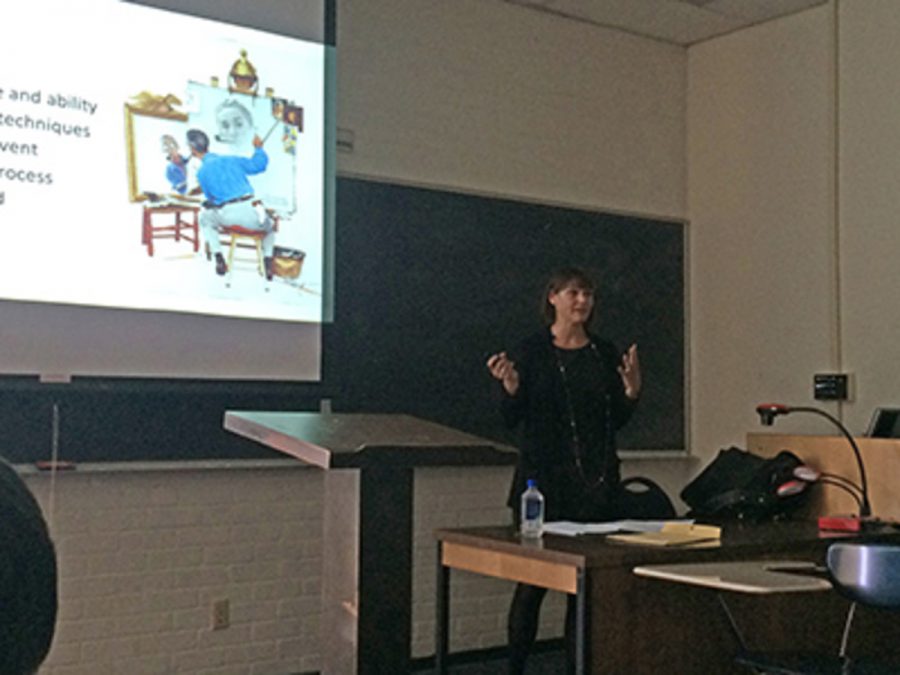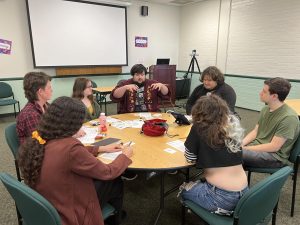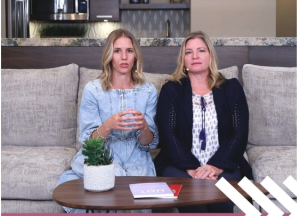Selfies: the self portrait in the Age of Facebook
Kathleen Zoraster, an art history professor, liss the reasons people have created self portraits. Photo by: Jessica Frantzides
April 16, 2015
Kathleen Zoraster discussed the evolution of the self portrait and how their meanings and implications are represented throughout history during her lecture on Multicultural Day.
According to Zoraster, an art history professor, the word ‘selfiie’ was deemed word of the year in 2013, just a bit after it was officially added into dictionaries. This represents how incorporated into our culture the latest version of the self portrait really is.
Self portraits can be traced back all the way to ancient Egypt where in 1365, Bak created a statue of him and his wife, and closely based it off himself.
This trend of fashioning art after the artist himself continued on through the Renaissance, which introduced the mass production of mirrors, all the way up until the 1800s, when artists began focusing on their individuality instead of their status.
“I never realized selfies were made so long ago!” said Faryn Foster, a 19-year-old Health Science major. “Now every time I look at a selfie, I will have to analyze it.”
Over this span of time, the reasons for creating these self portraits have remained mostly similar, according to Zoraster. These include: developing skills, advertising style and ability, experiment with new techniques, commemorating a life event, documenting the aging process, expressing a state of mind and propaganda.
The modern day self portrait, better known as the selfie, poses a problem because it encourages manipulation in order to create a more perfect picture.
With the technology of today, sharing our selfies is easy and we can receive instant gratification and acceptance, but does this trend lend to narcissistic tendencies or is it simply an accepted aspect of our culture?
“I think there are some benefits to sharing, but it’s potentially damaging to society,” said Zoraster. “It can create expectations.”








